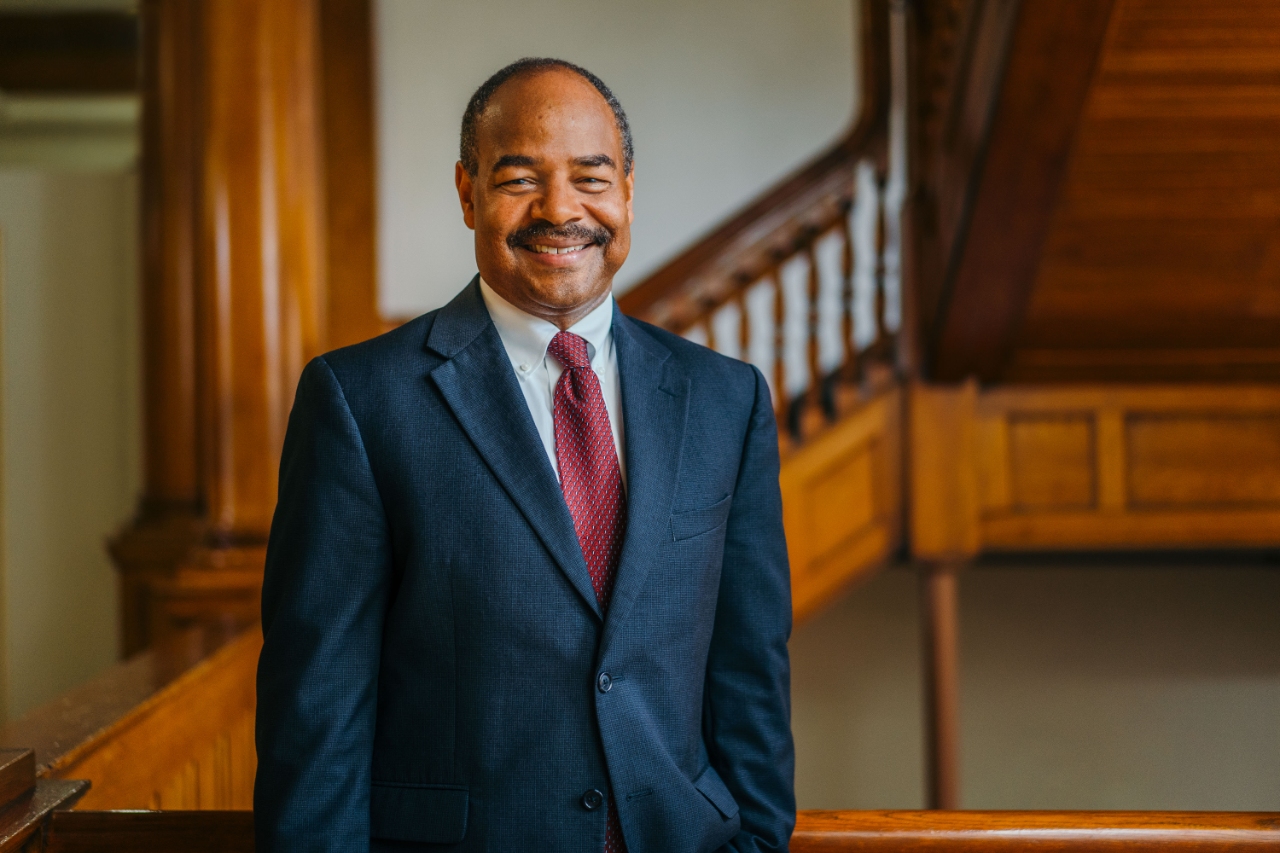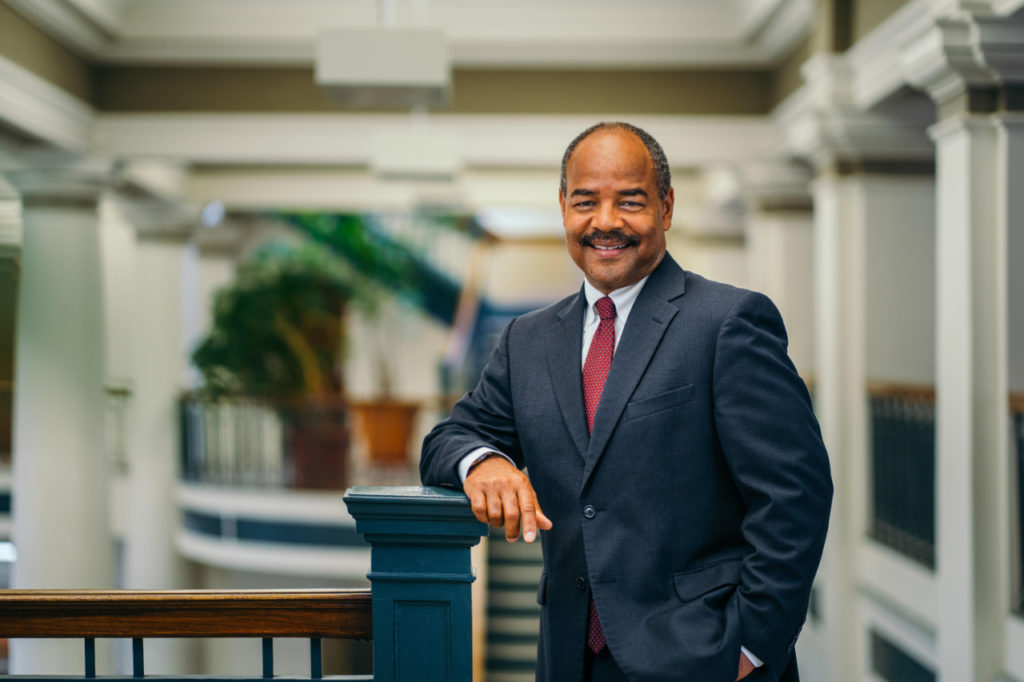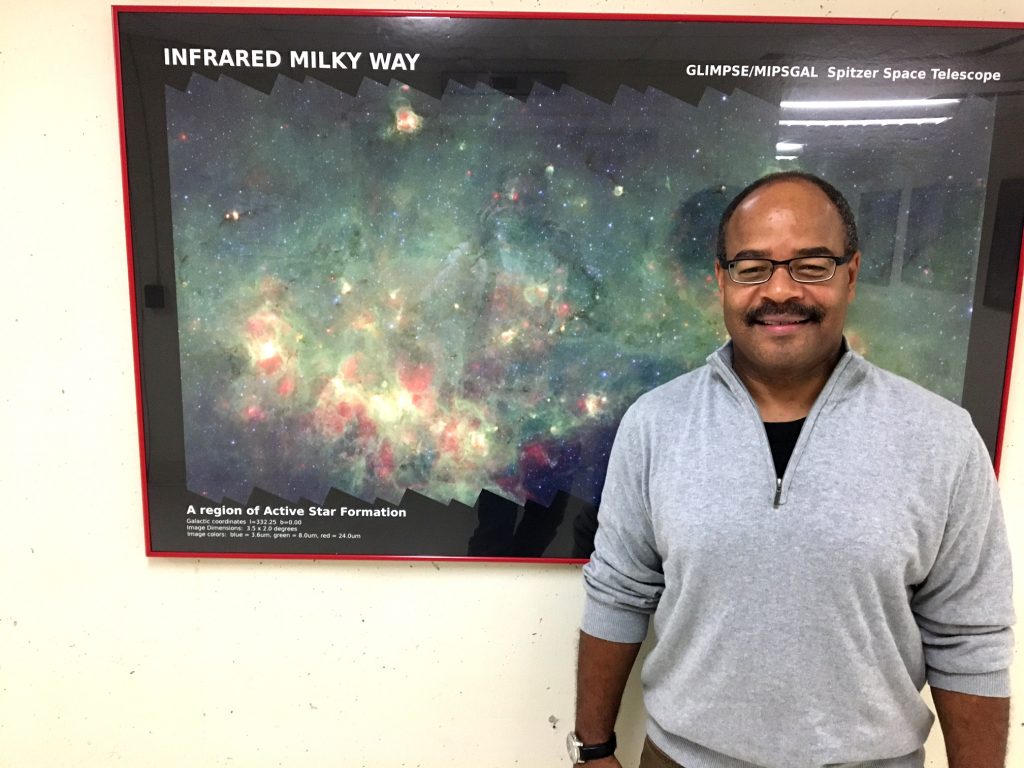
Astronomer Dr. Eric Wilcots made history when he was recently selected to be dean of the UW College of Letters & Science, becoming the first-ever African American to lead the University of Wisconsin-Madison’s largest academic unit.
“We have a large group of students and a big faculty. In terms of research, in dollars we are second to the School of Medicine and Public Health. It’s the biggest college at UW-Madison,” Wilcots tells Madison365. “It’s an enormous and broad operation … a lot of responsibility.”
The College of Letters & Science is comprised of more than 20,000 students, 800 faculty members, 37 academic departments, 13 non-academic departments, 73 interdisciplinary research centers and institutes, and five professional schools across three broad divisions: arts and humanities, physical and natural sciences, and the social sciences.
“I am thrilled to make this important leadership appointment,” says Provost John Karl Scholz in an announcement from the university. “Eric enthusiastically embraces the breadth of scholarship and passion for learning that are at the core of the college and his intimate understanding of how the college works will be an asset as we navigate the uncharted waters in which we find ourselves right now. He will be a terrific dean and I look forward to working with him as he assumes this role.”

Photo: Paulius Musteikis
Wilcots had been named interim dean of the college last summer. He now says that he’s excited to have the job on a permanent basis. He will be succeeding Scholz, who became the university’s provost in August of 2019. Prior to his current position, Wilcots had served as the deputy dean and associate dean for research of the College of Letters & Science.
“We’re going to enter a phase – and I think we’re already in it – where what is called a ‘liberal arts education’ is somewhat attacked as not being practical … especially in times of high unemployment,” Wilcots says. “I think we’re going to be constant and vigilant in reminding ourselves, students, and parents of the value of that liberal arts education that is at the heart of what L&S does.
“It is very valuable. The skills that our students are getting through their wide array of courses and their wide array of majors are the skills that the world really needs,” he adds. “Critically thinking is a key part of what we do. Communication is an obvious one. The ability to understand data and numbers and how science works … all of that is part of a liberal arts education that is in demand in the world. We need people with those skills.”
Wilcots messaging to students, he says, is all around “leadership.”
“We’re hoping that our students emerge from UW-Madison with their L&S degree as leaders in their communities and their disciplines and whatever aspect of life they go on to try out,” he says.
Wilcots is well aware of the significance of becoming the first African American ever to serve as dean of the College of Letters and Science.
“I think that’s important … especially at a time like this,” Wilcots says. “The old expression is ‘You can’t be what you can’t see.’ For young kids of color to see people like myself in high positions of leadership … I think that’s great. I recognize my responsibility as a role model and I hope I can at least clear some of the path for others to come behind me. That, in and of itself, is great.”
Wilcots recently sent a message to students titled “Pain and Frustration in our L&S Community” that addressed the killing of George Floyd that has gripped the nation. “It is difficult for me to write a message to the L&S community in a way that is not personal,” he wrote. “I am an African-American male, my daughter lives in Minneapolis, and my father and brother still live in Philadelphia where there have been large protests.”
But, he added, he didn’t want to fall into thinking that systemic racism and injustice are problems too large and too pervasive for us to solve.
“Let us not fall into thinking that finding solutions is someone else’s responsibility. This is not work that can or should be only borne by a few,” he wrote. “As individuals, we must all speak out and act against racism and injustice, acknowledge our biases and prejudices and work actively to counter them. As a community, we must work to ensure that all of us are safe, welcomed, and included. Together, it is our responsibility to do all that we can to end racism and injustice.”

(Photo by A. David Dahmer)
Wilcots earned his bachelor’s degree at Princeton University in 1987 and Ph.D. from the University of Washington in 1992. He came to UW-Madison in 1995 where he taught introductory astronomy.
For the past quarter-century, Eric Wilcots has been one of the University of Wisconsin–Madison’s most prominent astronomers and for many years he led the committee overseeing the Wisconsin Science Festival. Wilcots has been a lover of astronomy all the way back to when he was 8 years old and his parents got first got him a telescope and, yes, he was paying very close attention when NASA and SpaceX recently launched its first astronauts to the space station from the United States since 2011.
“It’s so great. I think the fact that we are back having the ability to launch American astronauts into space is fantastic,” Wilcots says. “I think that there are many who realize that when we shut down the shuttle program that we were losing our ability to put people into space and were relying on others to do that. So this is a tremendous achievement. We’re back doing that.
“It shows that we as a country remain committed to space and to exploration and to that vision of exploring and learning new things because that’s important,” he adds. “It’s a great restart of our adventures in space. I would love to see somebody on Mars in my lifetime. I think that would be just fantastic – to make that next big step.”
Wilcots is the Mary C. Jacoby Professor in the Department of Astronomy, a department he joined in 1995 and chaired from 2005-2008. He also served as the College of Letters & Science’s associate dean for natural sciences from 2008-2018. Wilcots says that he is dedicated to promoting outreach and the Wisconsin Idea, and that includes making sure the university is welcoming and inclusive of all people.
“Diversity and inclusion are important. Everybody that walks in the door, walks onto campus and who wants to be part of what we’re doing has to feel like they belong and feel at home in order for us to be successful,” Wilcots says. “But we have got to do that. That’s a key goal that I have in my five-year term as a dean to make sure L&S is not just living up to that ideal but exceeding it. We can be a whole lot better and I think we can be national leaders in how a large, research 1 university – in a state where the demographics are not all that diverse – attracts, recruits, retains and excels and propels members from all kinds of backgrounds to success.
“I embrace the opportunity to be able to work with departments across the college and help all of our departments be a lot better in diversity and inclusion in every aspect,” he adds. “There’s much more to be done on that and I’m eager to get to work on it.”
Another of Wilcot’s goals is to make sure that “we are true to our mission and fulfilling our mission for research excellence.”
“We have people here working on some of the most vexing problems that face us – be it problems of inequality and race relations; be it climate change,” Wilcots says. “We want our people at the forefront of that research agenda – setting that research agenda, driving it forward and being national and international leaders in that.
“We should have a body of thought leaders in the college who really are the people that others turn to to help understand the world that we are in,” he adds. “We have lofty goals but we have a great group of people who can do it.”



